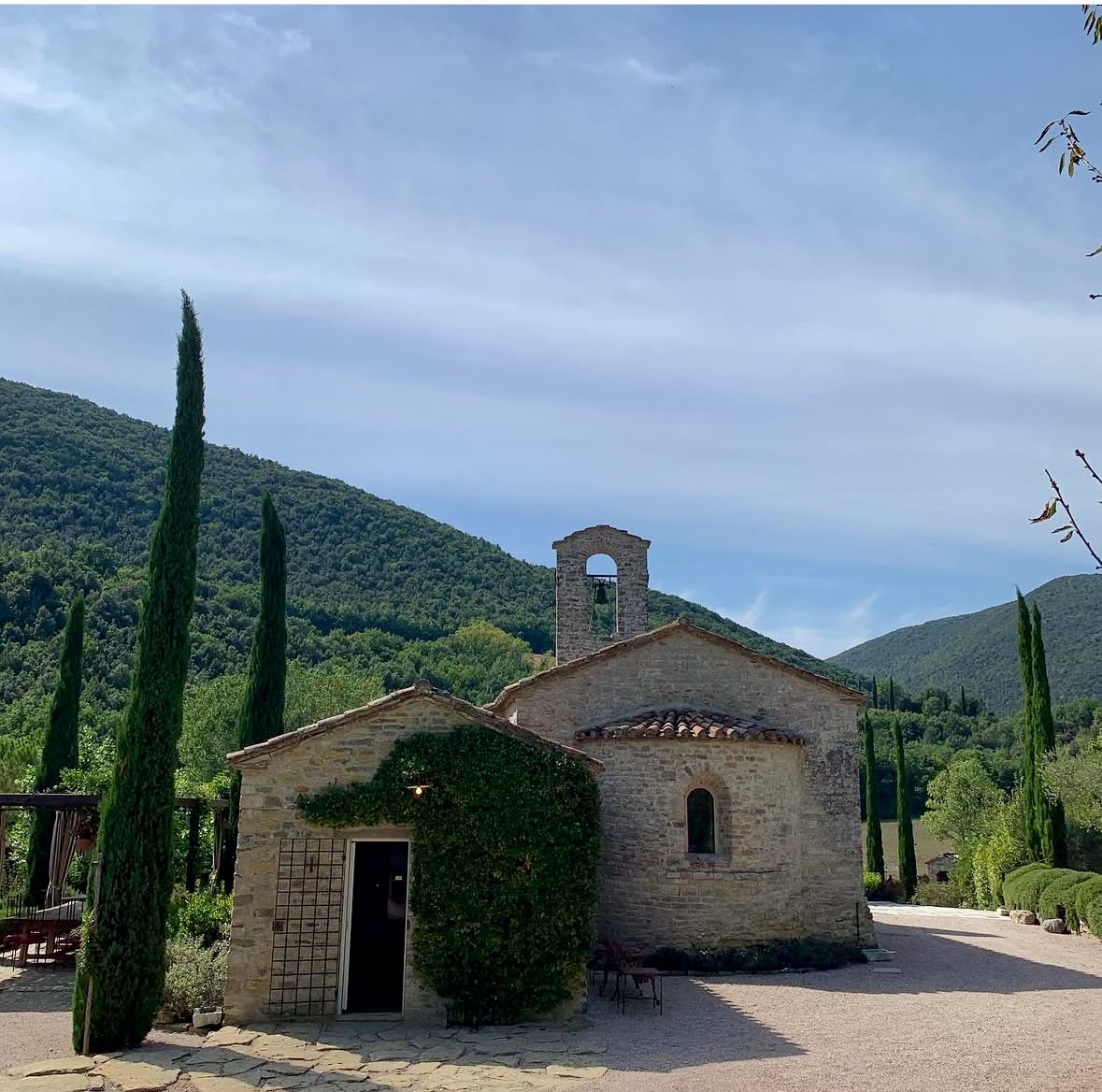Don’t Miss This Amazing Winery In Umbria: Chiesa del Carmine
It should be no secret by now that I LOVE Umbria. I love Italy but the calm, unspoiled countryside of Umbria is where I choose to return to year after year. We often rent an Airbnb and just spend the days traveling around the hilltowns, collecting great wine, meats, and cheeses made by locals. Wine tasting is also part of the allure of this region so I’m always on the lookout for really cool, and tasty, wineries. A few years ago, I discovered Chiesa del Carmine and it was such a memorable experience, it’s now become our go-to winery when we’re in Italy.
Nestled in the rolling hills of Umbria near Perugia, Chiesa del Carmine offers visitors a tranquil and enchanting experience where history, nature, and gastronomy unite. This meticulously restored 11th-century church and estate is a dream destination for food and wine enthusiasts seeking an authentic taste of Italian culture. From its lush vineyards and olive groves to its curated food and wine tastings, Chiesa del Carmine is an unforgettable journey into the heart of Umbria’s culinary heritage.
Chiesa del Carmine was originally built as a chapel in the 11th century, later expanded and transformed over the centuries. In recent years, the property underwent a painstaking restoration to preserve its ancient charm while introducing modern comforts. The result is a stunning estate that seamlessly blends history with luxury, featuring elegant guest accommodations and beautiful outdoor spaces perfect for relaxation or private events.
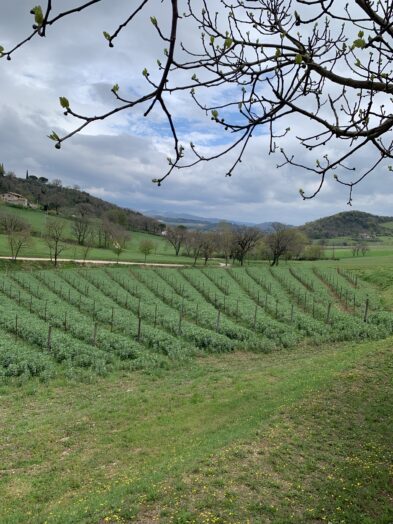
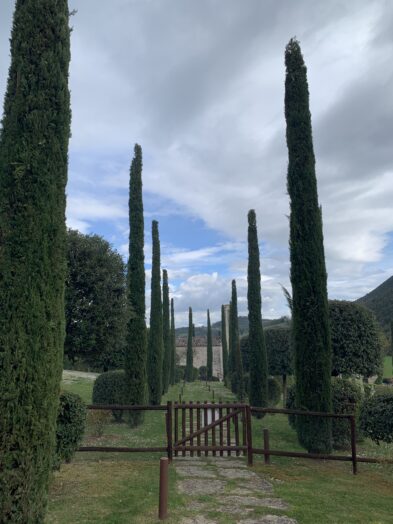
The estate’s historical architecture, including its vaulted ceilings and stone walls, provides a dramatic backdrop for weddings, celebrations, and intimate gatherings. Surrounding the estate are panoramic views of the Umbrian countryside, creating an idyllic setting for any occasion.
Food and Wine Tastings in Umbria at Chiesa del Carmine
One of the highlights of visiting Chiesa del Carmine is the opportunity to indulge in expertly curated food and wine tastings. The estate boasts its own organic vineyard, producing award-winning wines that reflect the region’s rich terroir. Guests can participate in guided tastings led by local sommeliers who explain the unique characteristics of each vintage.
Pair your wine tasting with locally sourced delicacies, including artisanal cheeses, freshly baked bread, and cured meats. The estate also offers olive oil tastings featuring their own extra virgin olive oil, pressed from olives grown on the property. This golden elixir perfectly complements the rustic flavors of Umbria and highlights the region’s commitment to sustainable farming practices.
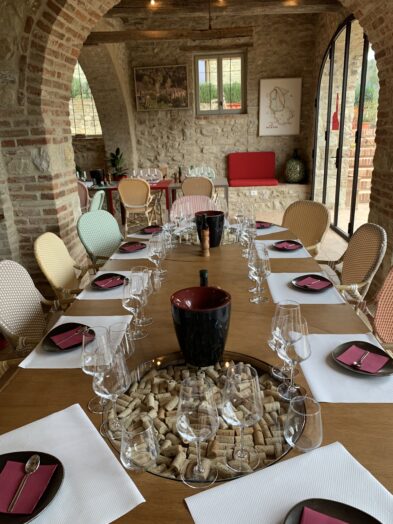
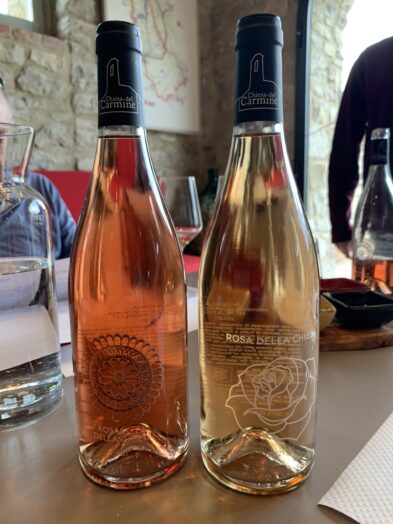
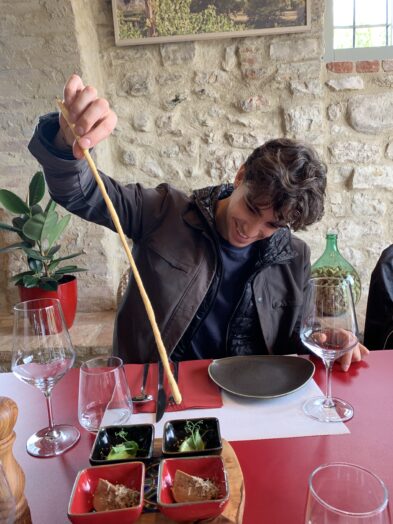
Cooking classes are also available for those eager to learn the secrets of Italian cuisine. Guests can join skilled chefs in preparing traditional dishes such as handmade pasta, seasonal vegetable dishes, and delectable desserts. These classes often end with a shared meal, allowing participants to savor their creations alongside wines from the estate.
Beyond its culinary offerings, Chiesa del Carmine is surrounded by vineyards, olive groves, and fragrant herb gardens. Guests are encouraged to take leisurely walks through the estate’s grounds, where they can admire the natural beauty and soak in the peaceful ambiance.
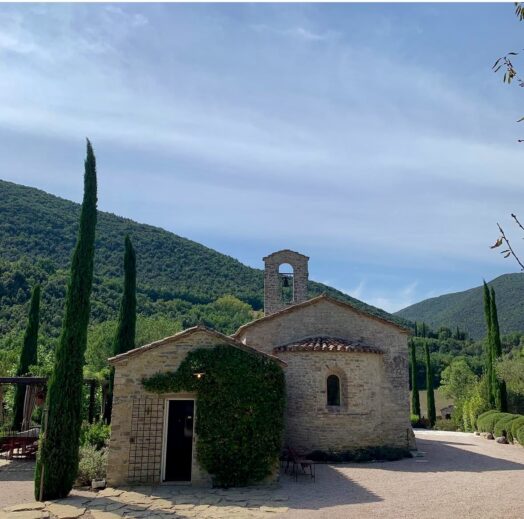

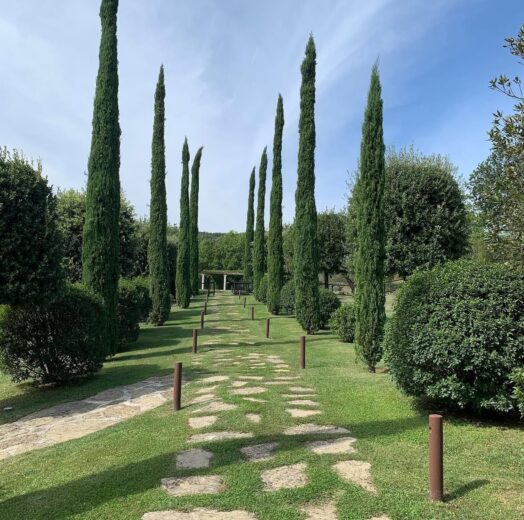
For those seeking adventure, hiking trails and cycling routes wind through the nearby Monte Tezio Nature Reserve, providing breathtaking views of the Umbrian hills. The estate also organizes guided tours of the surrounding villages and historic landmarks, offering an immersive experience of the region’s culture and history.
Special Events and Accommodations at Chiesa del Carmime
Chiesa del Carmine is the best venue for a wedding in Italy (IMHO), as well as for anniversaries, and other special occasions. Chiesa del Carmine is a stunning 11th century church and 18th century farm house, restored in 2012, with accommodation for 14 people.It is a beautiful 8 bedroom (6 doubles and 2 singles) country house nestling among hills in a peaceful valley, surrounded by meadows, woods, vineyards and olive groves. It is reached via a ‘strada bianca’ – white (unmade) road – and is approximately 1 kilometre from the main road. The views from the church and house are beautiful. There is an atmosphere of peace and quiet although the property is not isolated. The nearest village of Pierantonio and its shops are a 10 minute drive away, Umbertide, the nearest small town is about 15 minutes and Perugia is about 25 minutes away.The estate’s intimate chapel provides a romantic setting for ceremonies, while its expansive outdoor spaces are perfect for receptions under the stars. The staff works closely with couples and event planners to create personalized experiences, from customized menus to floral arrangements and entertainment.
Throughout the year, Chiesa del Carmine also hosts seasonal events and festivals, celebrating everything from grape harvests to olive oil pressing. These events give visitors a chance to partake in traditional Italian festivities while enjoying fresh, farm-to-table cuisine.
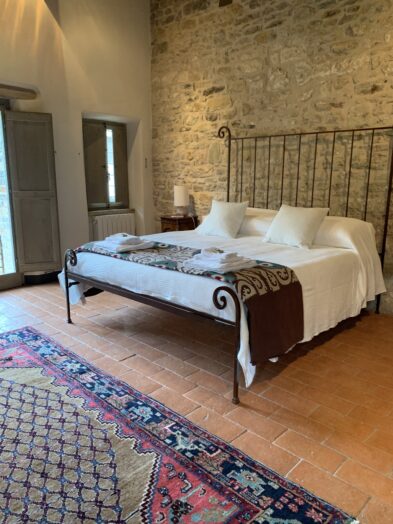
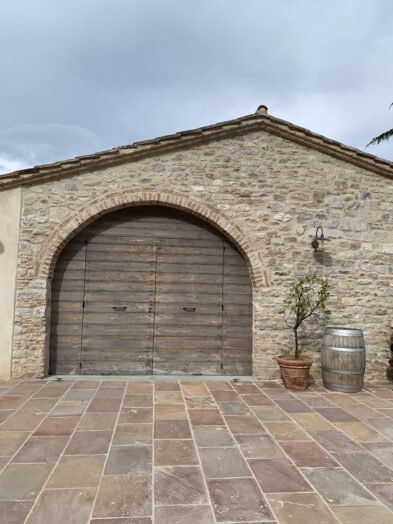
Plan Your Visit
Whether you’re a foodie, a wine lover, or someone seeking a serene retreat, Chiesa del Carmine offers an unparalleled experience in the heart of Umbria. Its combination of history, luxury, and gastronomic delights makes it a must-visit destination for travelers exploring Italy.
To learn more about upcoming events, tastings, and accommodations, visit Chiesa del Carmine’s official website and start planning your unforgettable journey today.
About Umbria: Italy’s Green Heart
Umbria, often referred to as the “Green Heart of Italy,” is a picturesque region located in central Italy. Nestled between Tuscany, Lazio, and Le Marche, it is the only Italian region without a coastline, yet it captivates visitors with its rolling hills, medieval towns, and lush landscapes. Known for its rich history, art, and cuisine, Umbria offers an authentic Italian experience steeped in tradition and natural beauty.
The region’s capital, Perugia, is a vibrant city renowned for its medieval architecture, historic center, and cultural festivals, including the world-famous Umbria Jazz Festival. Perugia is also home to the Rocca Paolina, a fortress that offers a glimpse into the city’s Renaissance past. Another notable city is Assisi, a UNESCO World Heritage Site and the birthplace of St. Francis of Assisi, one of Italy’s most revered saints. The Basilica of St. Francis draws pilgrims and art lovers alike, featuring stunning frescoes by Giotto and Cimabue.
Another of my favorite towns include Orvieto, perched atop a volcanic plateau and famous for its stunning Duomo di Orvieto, a masterpiece of Gothic architecture. Spoleto attracts visitors with its Roman theater, medieval aqueduct, and the annual Festival dei Due Mondi celebrating music and arts. For nature enthusiasts, Lake Trasimeno, one of Italy’s largest lakes, offers opportunities for boating, hiking, and exploring charming lakeside villages.
I would be remiss if I didn’t mention one of my “new” favorite towns in Umbria, Civita di Bagnoregio. I learned about this secret little hilltop town from a Rick Steve’s show and it is one of the few remaining walled cities in Umbria – in fact, it’s only accessible via a long stone footpath which is part of its charm. Don’t miss it!
With its tranquil countryside, vineyards, olive groves, and centuries-old traditions, Umbria embodies the soul of Italy and provides a perfect retreat for travelers seeking culture, history, and natural beauty.
Where to Stay in Umbria
Umbria offers a range of accommodations that cater to different travel styles, but renting a villa is undoubtedly my preference and one of the most enchanting ways to experience this picturesque region. Villas provide the perfect blend of privacy, charm, and comfort, often set amidst rolling hills, olive groves, and vineyards, making them ideal for families, groups, or couples seeking a romantic escape. Many villas come equipped with private pools, outdoor dining areas, and fully equipped kitchens, allowing guests to immerse themselves in the local lifestyle. For those who prefer a more traditional stay, Umbria also boasts a variety of boutique hotels and agriturismos (agricultural tourism farmhouses) that deliver authentic hospitality and modern amenities. From luxury properties in Perugia and Assisi to charming countryside inns, these hotels offer convenience and a taste of Umbrian culture, ensuring a memorable stay no matter your preference. My advice is to choose the area of Umbria you want to explore the most and select a villa in that region. Most of your explorations will take you out into the countryside on back roads so tend to base myself about a one hour drive from the towns I want to visit the most.
The Best Time to Visit Umbria
The best time to visit Umbria is during the spring and fall when the weather is mild, and the region’s natural beauty is at its peak. April to June offers lush green landscapes, blooming flowers, and comfortable temperatures ideal for exploring the countryside and historic towns. September and October are equally enchanting, with cooler weather, fewer crowds, and the added charm of grape harvests and autumn festivals celebrating local food and wine. Summer, especially July and August, can be warm, but it’s also a vibrant time for cultural events like the Umbria Jazz Festival in Perugia and the Festival dei Due Mondi in Spoleto. Winter is quieter, making it perfect for travelers seeking solitude and a chance to experience Umbria’s rich traditions without the tourist rush.
Getting to Umbria and Getting Around
Getting to Umbria is relatively easy, thanks to its central location in Italy. We generally fly into Rome (ideally I can score business class flights) and rent a car and drive to Umbria. Alternatively, the region’s main airport, San Francesco d’Assisi Airport near Perugia, offers flights from several European cities. Umbria is well-connected by Italy’s rail network, with key stations in Perugia, Assisi, Spoleto, and Orvieto, making train travel a convenient option. To fully explore the region’s charming hilltop towns and scenic countryside, renting a car is highly recommended. While larger cities like Perugia have local buses, many of Umbria’s smaller villages are best accessed by car, offering the flexibility to discover hidden gems and panoramic vistas at your own pace.
This blog post may contain affiliate links, meaning that if you click on a link and make a purchase, I may receive a small commission at no extra cost to you. I only recommend products and services I truly believe in and use myself.

